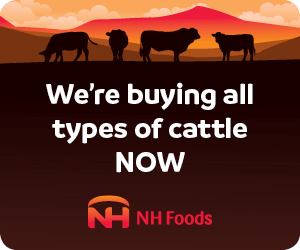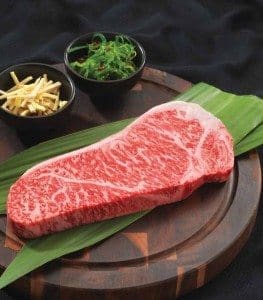THE Australian Agricultural Co this morning announced a pre-tax earnings loss of $182.7 million and underlying operating profit after flood and drought impacts are removed of $23.7 million for its financial year ended 31 March.
The operating profit figure, representing a $37m turnaround from a loss of $13.5m the previous year, excluded almost $47m in losses and expenses associated with the February flood event across Northwest Queensland.
 The impact of the gulf floods, where cattle losses on four AA Co properties were estimated at 43,000 head, when combined with the impact of drought related conditions valued at $60m, represented a cost of $107m to the company’s balance sheet.
The impact of the gulf floods, where cattle losses on four AA Co properties were estimated at 43,000 head, when combined with the impact of drought related conditions valued at $60m, represented a cost of $107m to the company’s balance sheet.
Operating cash inflow for the year of $13m represented a $52.9m improvement on the previous year. Revenue was down 4.1pc compared with FY2018, to $364m.
The pre-tax earnings loss of $182.7m, was due in part to a $204.9m reduction in livestock balances (value), which primarily occurred in the company’s non-Wagyu herd ($138m).
Unrealised losses due to reduced live cattle market prices of AA Co’s non-Wagyu herd were $30.4m, and within the Wagyu herd of $63.9m.
‘Extreme’ operating conditions
Managing director Hugh Killen told an investor briefing this morning that the company had continued to make progress implementing its premium branded beef strategy, despite facing extreme operating conditions which impacted the business this financial year.

AA Co managing director Hugh Killen
“While we have room for improvement in our results, when you exclude the Gulf flood event, our underlying operating results are positive year-on-year, despite absorbing an additional $60m in drought related costs,” he said.
Despite the weather challenges, AA Co’s Wagyu herd – described as the ‘engine-room’ of the business – grew by 3pc.
Mr Killen said AA Co was reaching the end of a transition period following the mothballing of the company’s Livingstone Beef processing plant near Darwin in July last year, and the closure of its 1824 grainfed beef supply chain program.
“We have made some tough decisions, with the outcome being business simplification and a more efficient AA Co,” he said.
“They have proven to be sound decisions – especially when you consider the drought – and have helped to set the company up for the next decade.”
 Mr Killen said AA Co had faced weather-related events that were unlike anything seen before, with 800,000 hectares of country affected by February’s floods, while drought conditions on other properties had driven up expenses.
Mr Killen said AA Co had faced weather-related events that were unlike anything seen before, with 800,000 hectares of country affected by February’s floods, while drought conditions on other properties had driven up expenses.
The company has offloaded about 9000 young cattle off its drought-impacted Barkly properties since March.
“Consistent with our two previous market updates, the impact of the extreme seasonal conditions is estimated at $107m in the FY19 year, including the $60m in drought costs along with an estimated $47m in livestock lost and emergency expenditure incurred in the Gulf flood event,” he said.
“While we estimate our flood loss at around 43,000 head of cattle, I’d like to acknowledge all of my team and our neighbours and friends who are also managing the impacts of this disaster.”
The cattle losses would not impact on AA Co’s ability to fulfil supply obligations or the rollout of the premium branded beef strategy, he said.
 Mr Killen said the company’s premium beef strategy gained momentum last financial year, with growth across key markets in Asia, the launch of the Westholme Wagyu brand in Dubai and the opening of a US commercial office in Los Angeles.
Mr Killen said the company’s premium beef strategy gained momentum last financial year, with growth across key markets in Asia, the launch of the Westholme Wagyu brand in Dubai and the opening of a US commercial office in Los Angeles.
Overall, Westholme and Wylarah revenue growth was up 6pc on the previous year, while the company’s ‘heritage’ Fullblood Wagyu brands were up 41pc. Wagyu revenue growth in established markets included 26pc in Asia, 10pc in Australia and 6pc in the EU. Overall Wagyu meat sales revenue was up 4pc for the year.
“We are well advanced progressing launches in larger markets, demonstrating our ability to produce the highest quality beef at scale,” Mr Killen said.
Sustainability focus
AA Co had recently released a sustainability policy that would help guide future decision making in this space.
“We are seeing an emerging narrative in the community about the impact of beef production on the environment,” Mr Killen said.
“Responsible business is good business, and our policy shows a commitment to continuous improvement and innovation in this important area.”
Weather response
Mr Killen said AA Co was progressing plans to mitigate the potential future impact of extreme seasonal conditions.
“We can’t control the weather, but we can look at how we respond when the weather turns against us,” he said. “Some of the things we are examining include how we better handle stock and feed in high-risk areas, and reviewing our station business model to further de-risk.”
“Tough weather conditions are forecast to continue, at least in the short term, which makes our strategy and response in this area even more important.”

My imaginary business also made an operating profit, after the impacts of operating losses and expenses were removed…..
AACo had a disastrous year. Even top line revenue was down 4%.